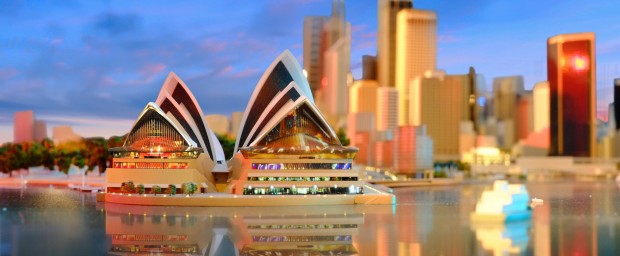Sydney's approach to short-term holiday stays
- Written by SCC

The City of Sydney wants the law changed to allow short-term holiday services, such as Airbnb, so long as neighbouring properties and traditional visitor accommodation services are not adversely affected.
In its submission to the NSW Parliamentary Inquiry into the laws on short-term holiday letting, the City said the ‘sharing economy’ was rapidly expanding around the world and local legislation had not kept up.
“Tech companies are providing increasingly efficient means for offering homes and spare rooms for short-term holiday letting but our laws have not kept pace,” Lord Mayor Clover Moore said.
“With the right rules, short-term holiday letting can support local communities and economies, while protecting amenity and the residential character of our villages.”
Under current planning controls:
- Tourist and visitor accommodation is not permitted in residential zones; and
- Residential accommodation and tourist accommodation in the same building must be on separate floors and have separate lifts.
The City does not support changing this long-term policy, which is in place to protect neighbourhood amenity and visitor safety.
Airbnb listings in metropolitan Sydney have almost doubled in the past year: from 5,692 in September 2014 to 10,473 listed properties in October last year. In the City of Sydney government area, there are 2,993 properties listed.
The record shows that short-term holiday letting is booming around the world, providing income for owners and local businesses, and providing a variety of accommodation experiences.
But the desire of property owners to offer short-term rentals, using online services such as Airbnb, needs to be balanced against the reasonable expectations of neighbourhood amenity and visitor safety.
The City is recommending a new definition for this style of accommodation and a consistent state-wide approach.
Under this proposal, premises could be classified as ‘exempt’ development where they meet certain requirements, such as limiting the number of days they can be let in a year and the number of people staying. If short term letting does not meet the requirements it would not be permitted.
“The City also wants to ensure there is continued investment in traditional visitor accommodation, which makes an important contribution to Sydney’s economy, with approximately 31,868 rooms or beds currently available, and another 4,259 hotel keys and 197 serviced apartments in the pipeline,” the Lord Mayor said.
“More than 10.5 million visitors came to Sydney in 2012, contributing over $5 billion to the city’s economy. This supported over 10,000 businesses in the transport, accommodation, education, retail, cultural and recreation sectors. This equates to almost 27,000 jobs or seven per cent of the city’s workforce.”
The City’s Visitor Accommodation Action Plan, adopted this year, supports investment in new and existing visitor accommodation to meet the demand forecast by the national tourism strategy, Tourism 2020.
To encourage investment and increase the number of beds or rooms in the traditional accommodation sector, the plan is to implement regulatory reform, such as reducing compliance costs and removing barriers, as well as facilitating new tourism infrastructure projects.
Quick statistics on the City of Sydney local government area:
Number of Airbnb listings: 2,993 (Source: insideairbnb.com/sydney/)
Number of hotel rooms: 20,000
Number of serviced apartment rooms: 4,700
Number of pub rooms: 968
Number of backpacker hostel beds: 6,200
Source: City of Sydney.
To view the submission, visit:
parliament.nsw.gov.au/prod/parlment/committee.nsf/0/6B0EE6FD823BC1E8CA257EBA0083B344



























